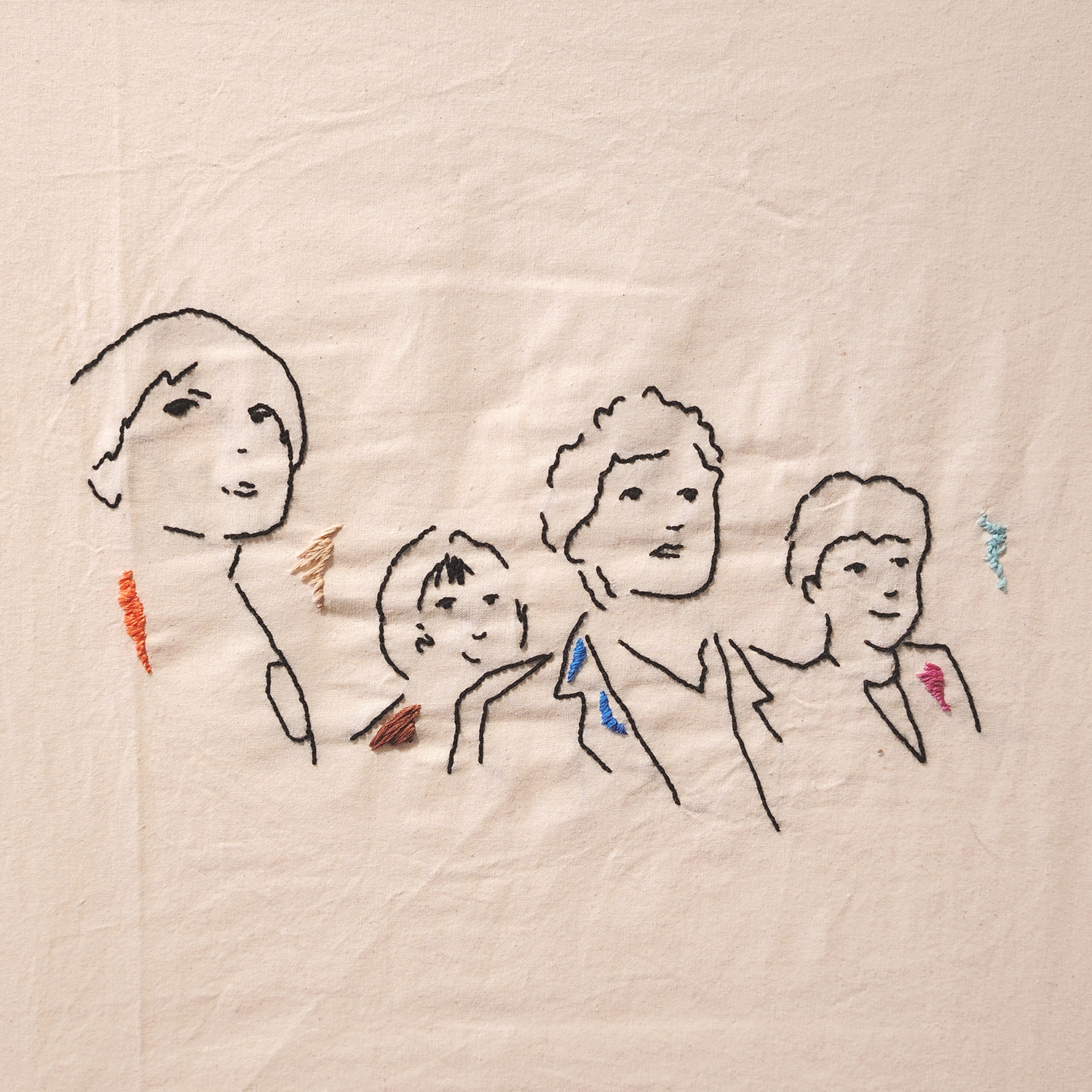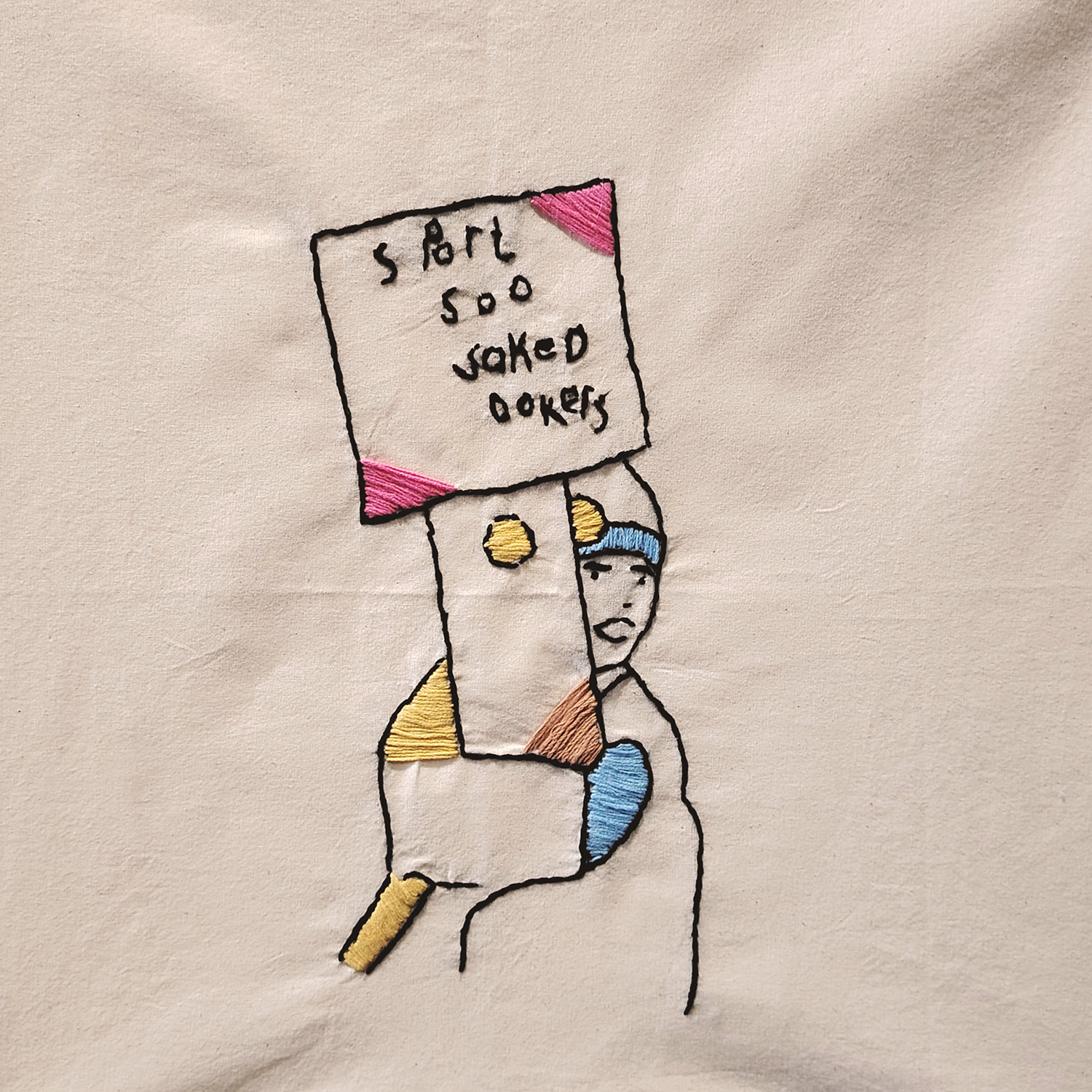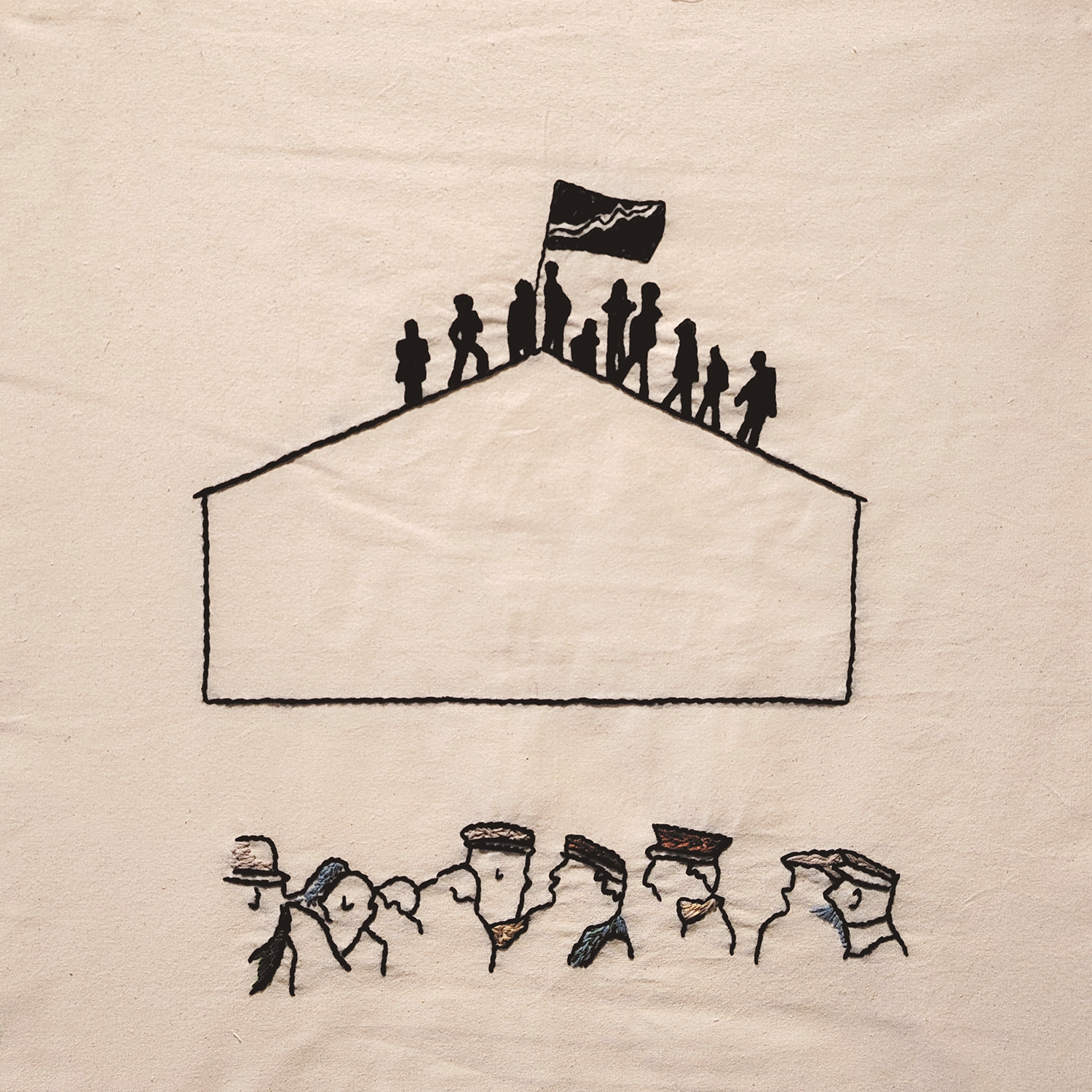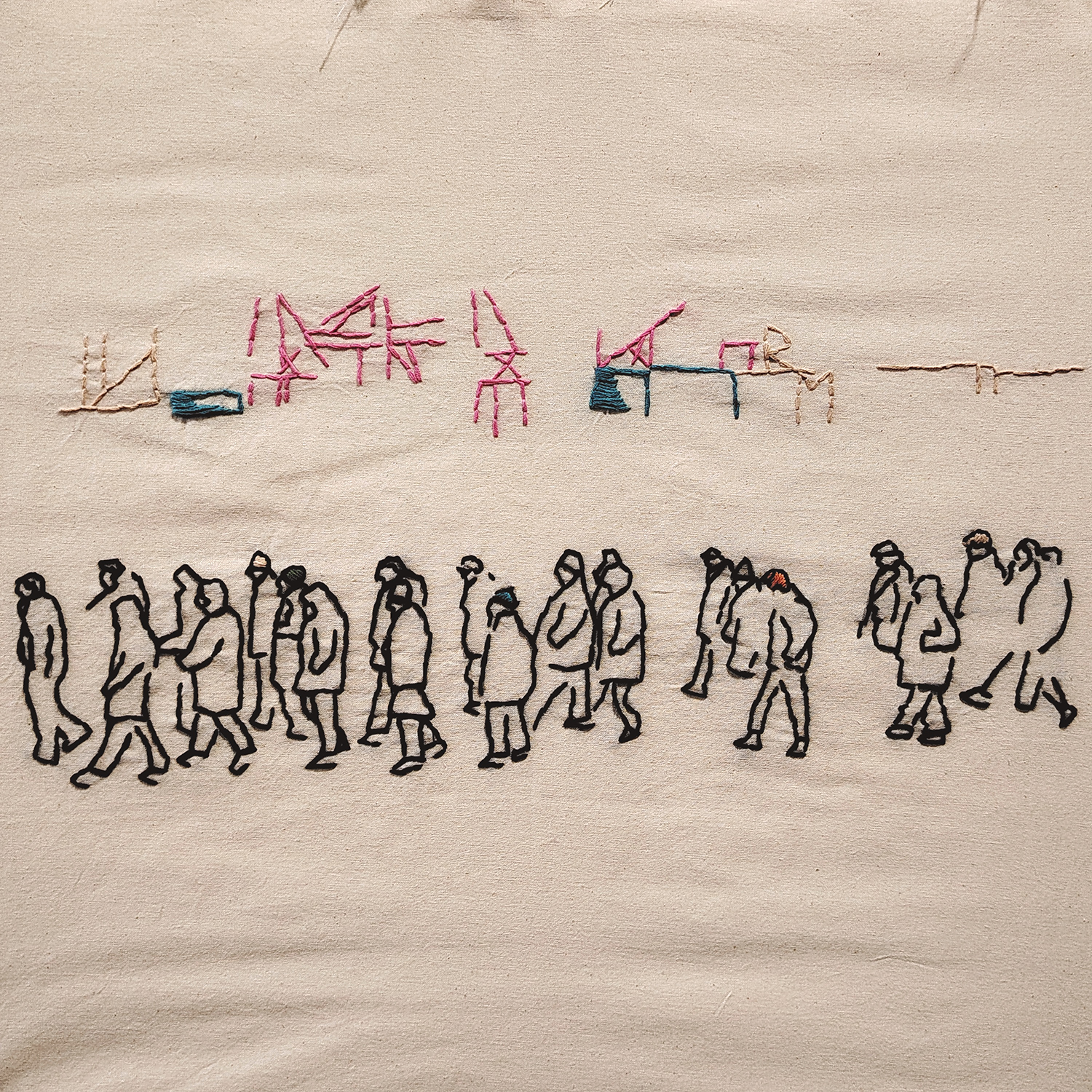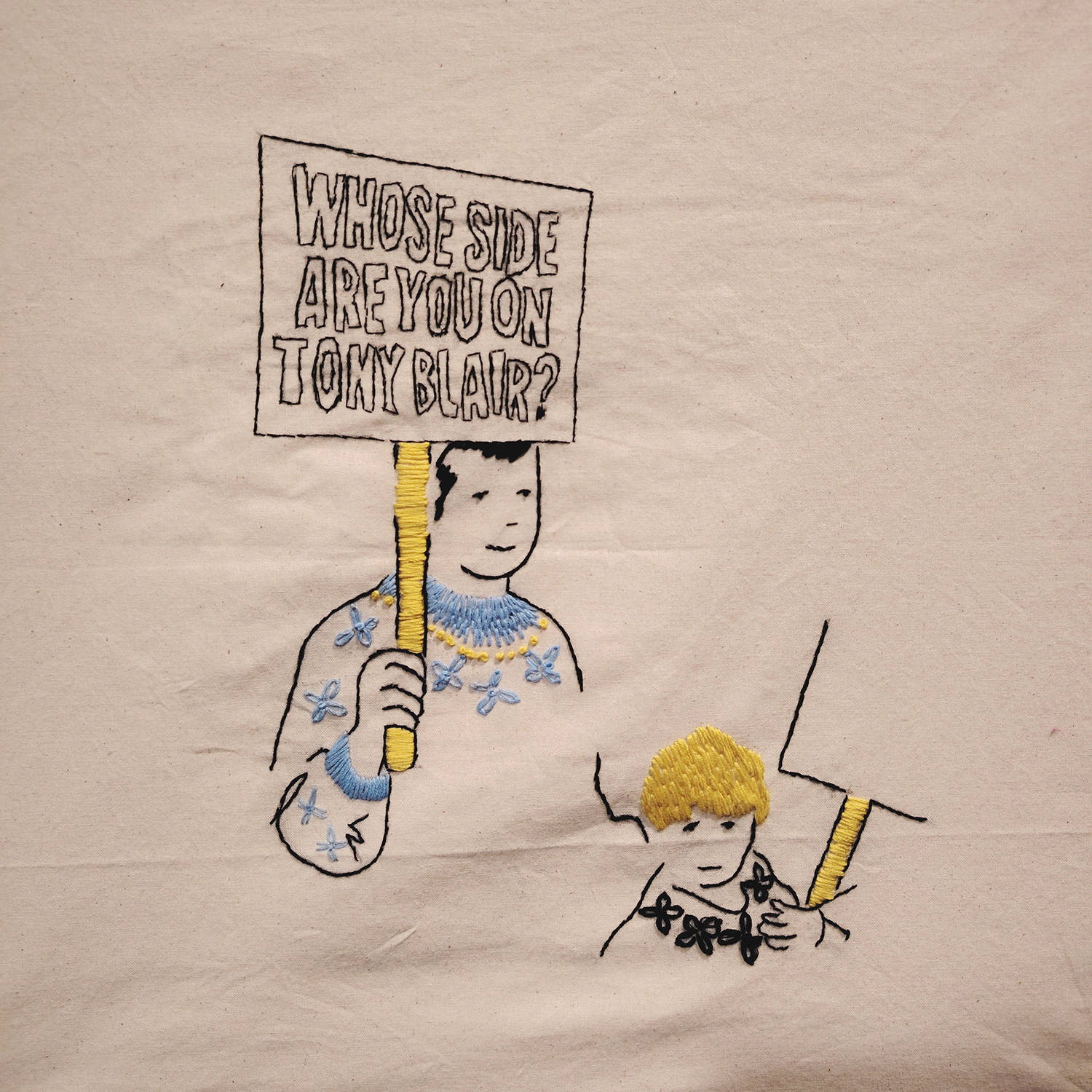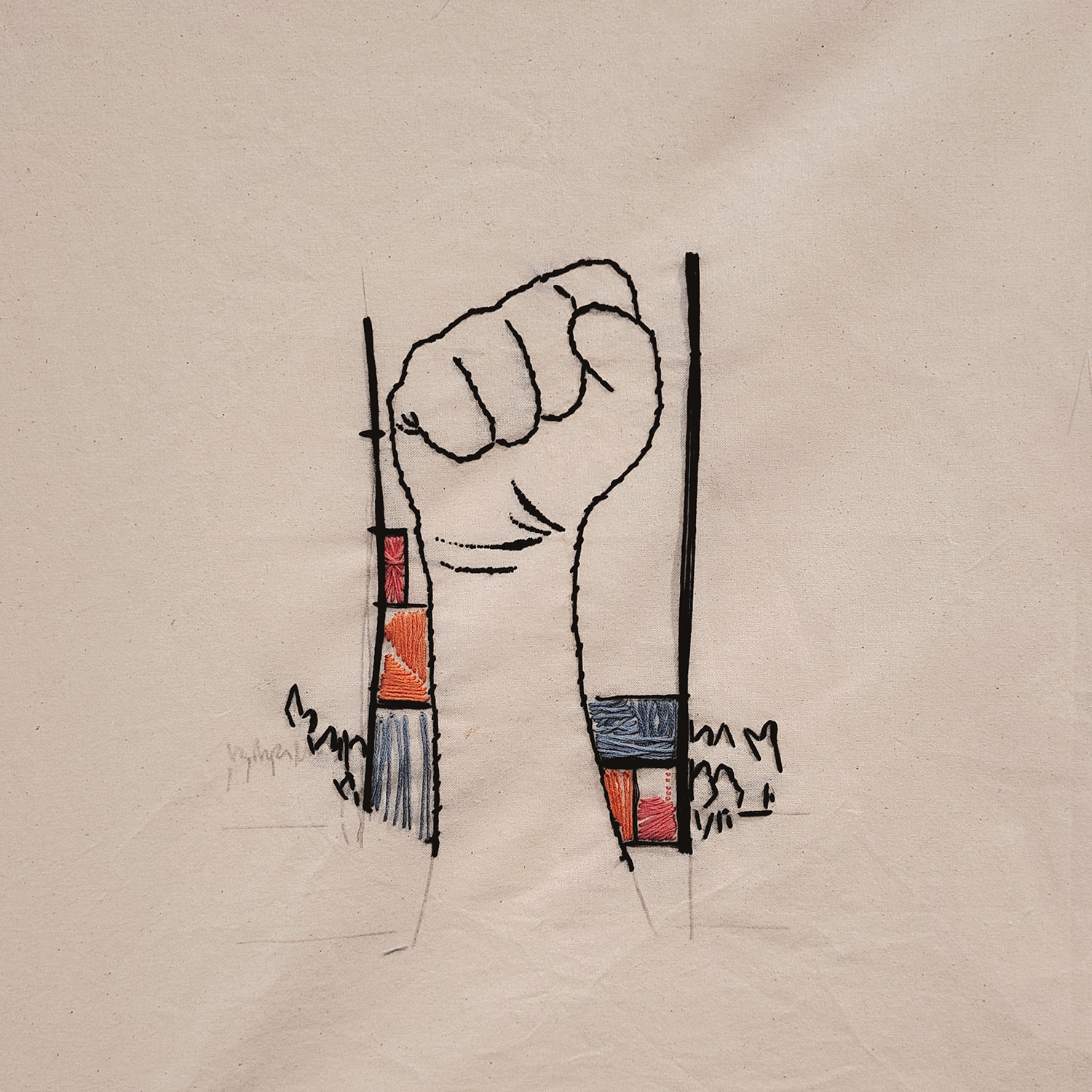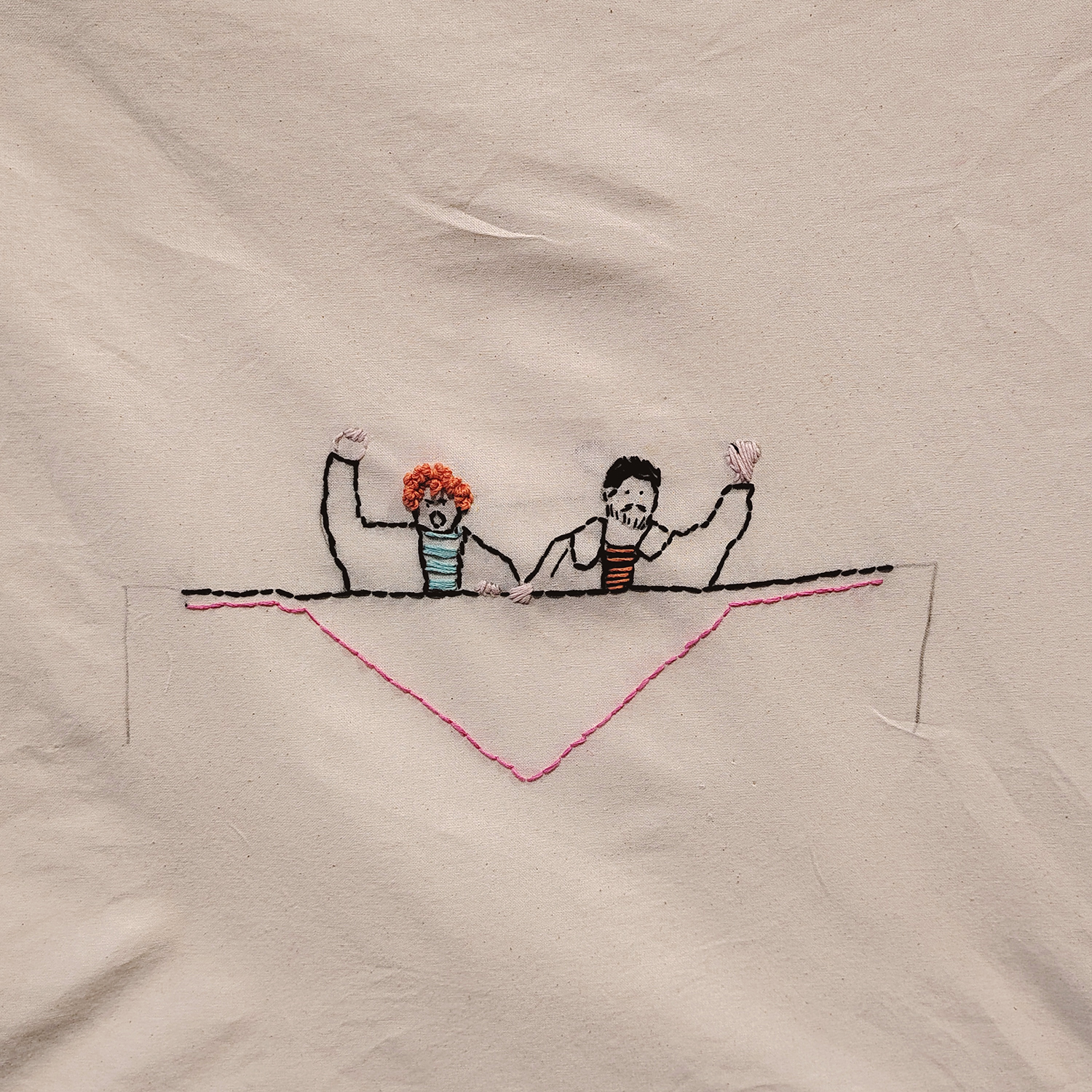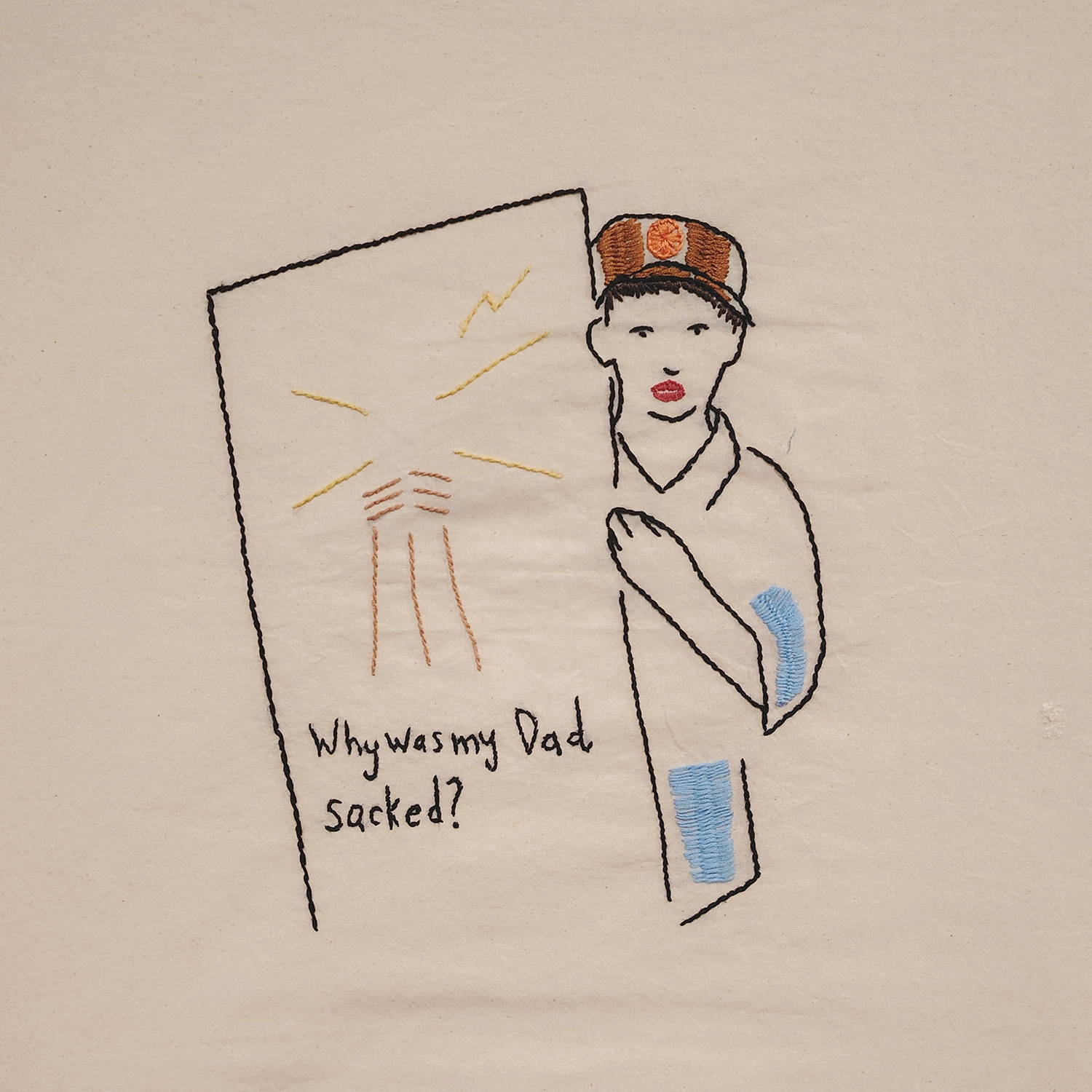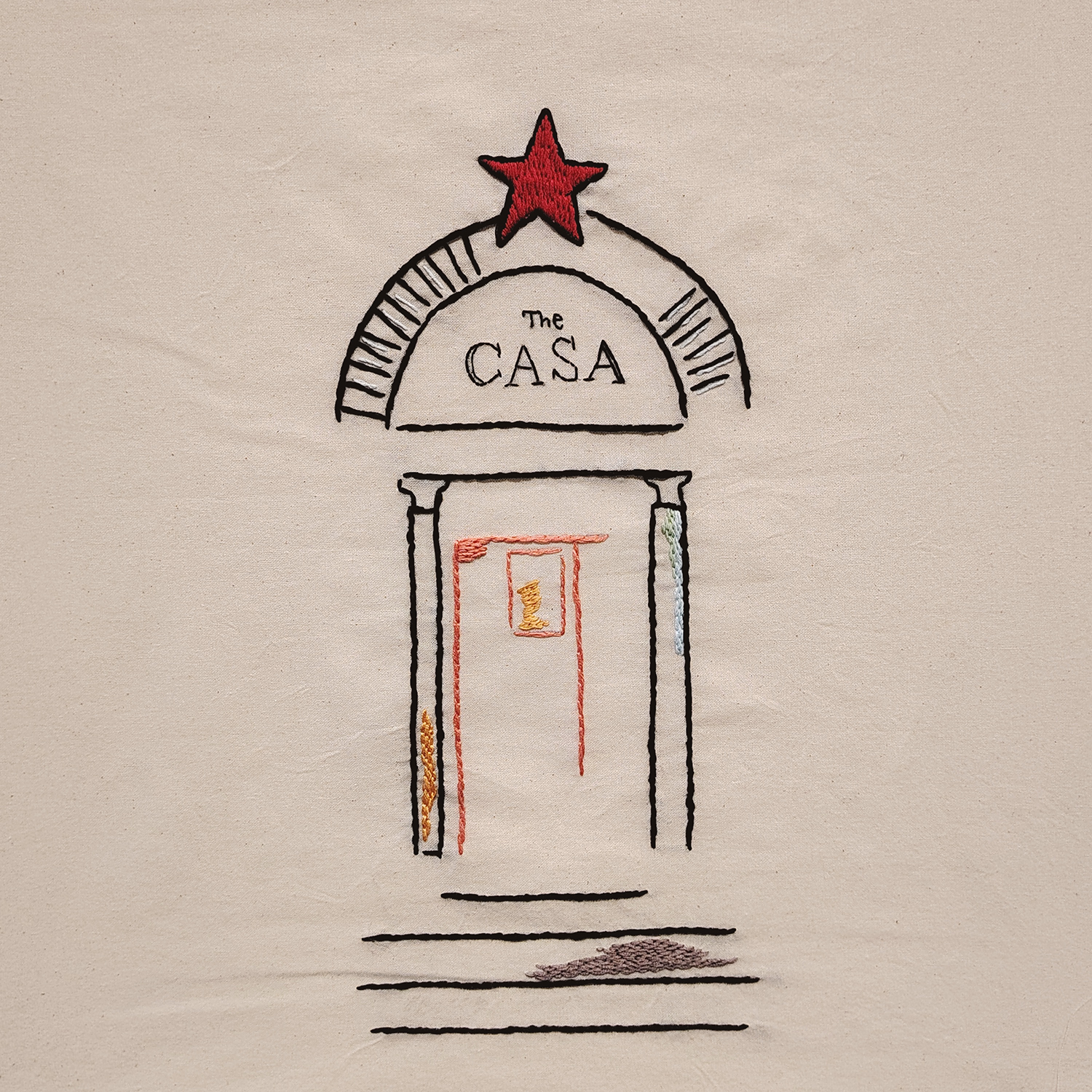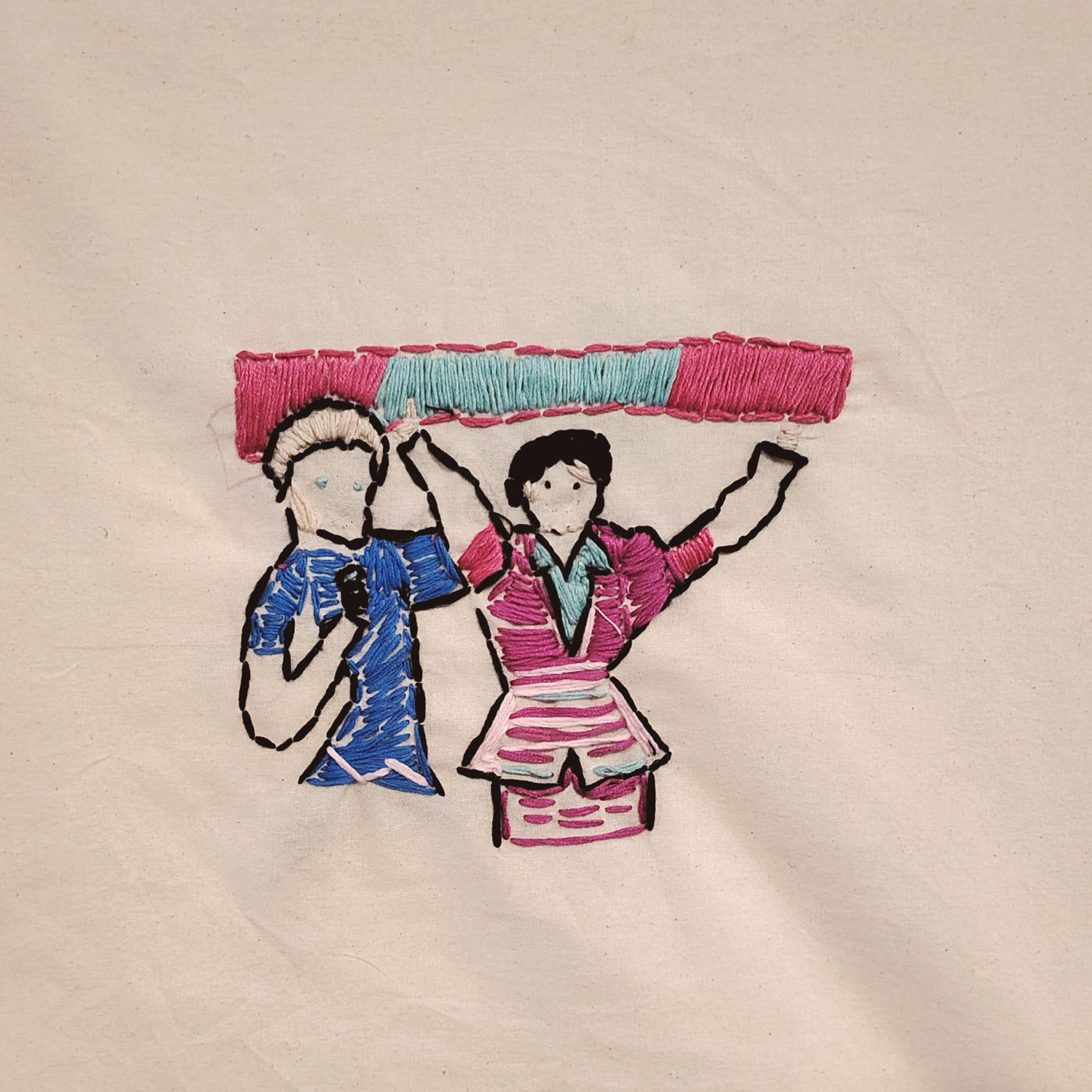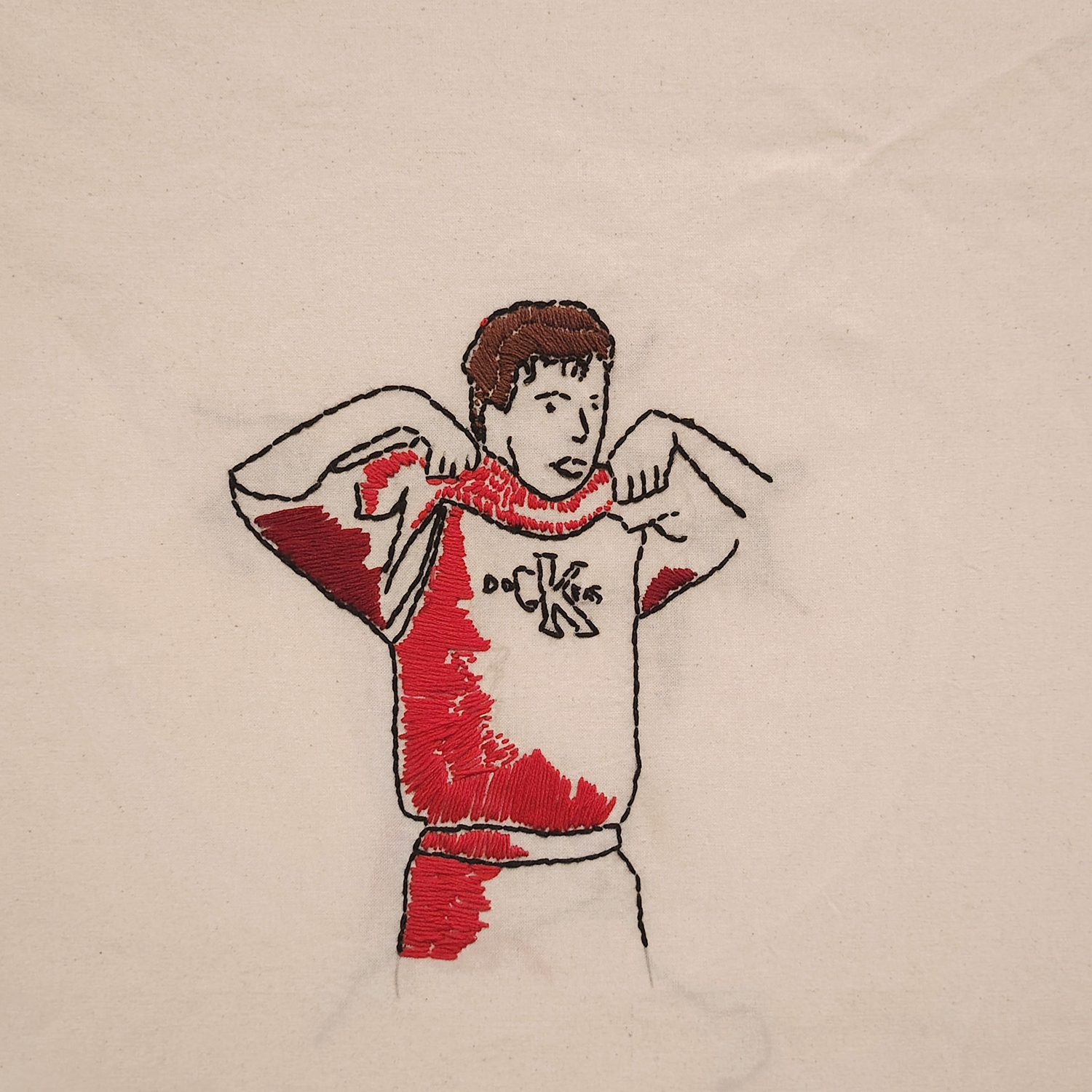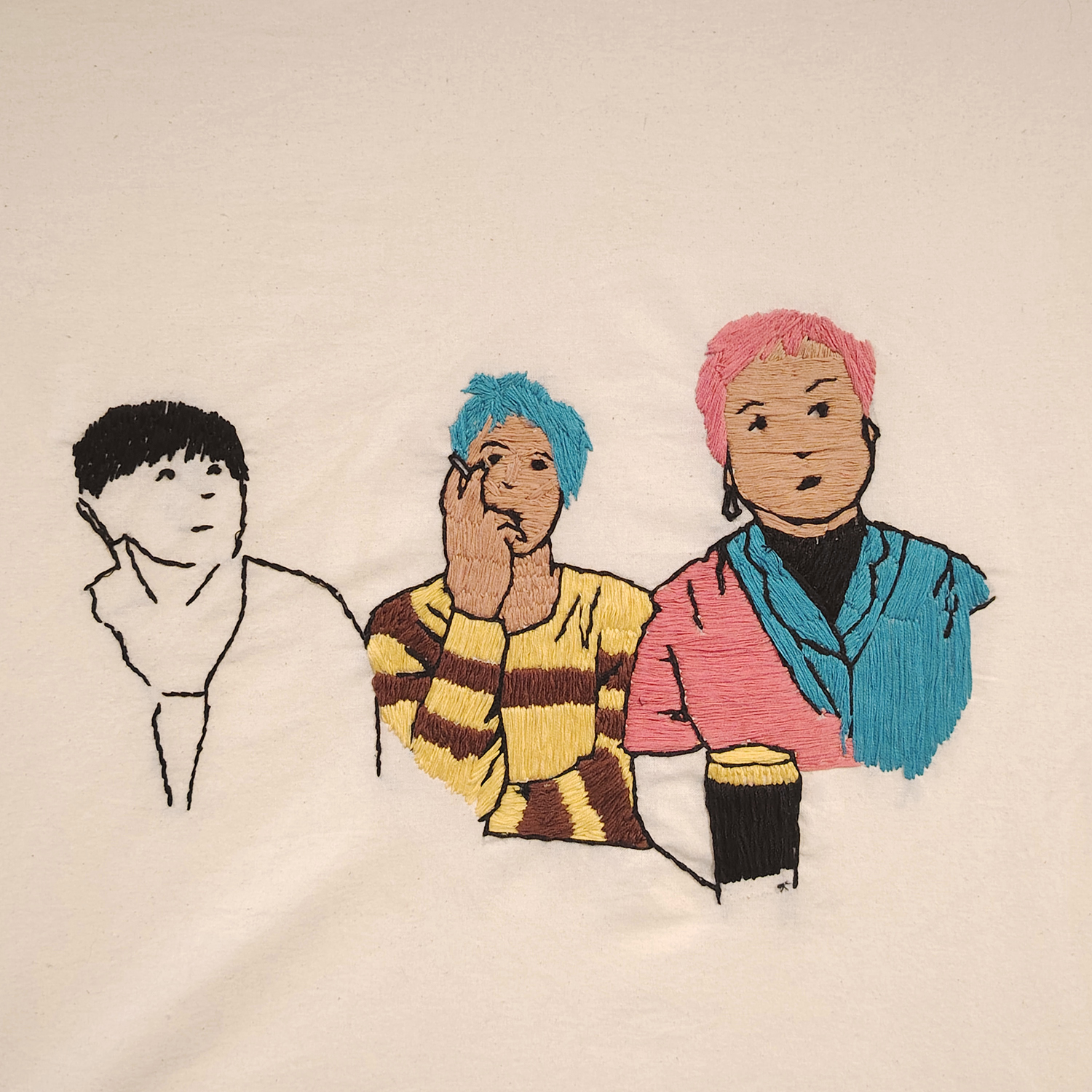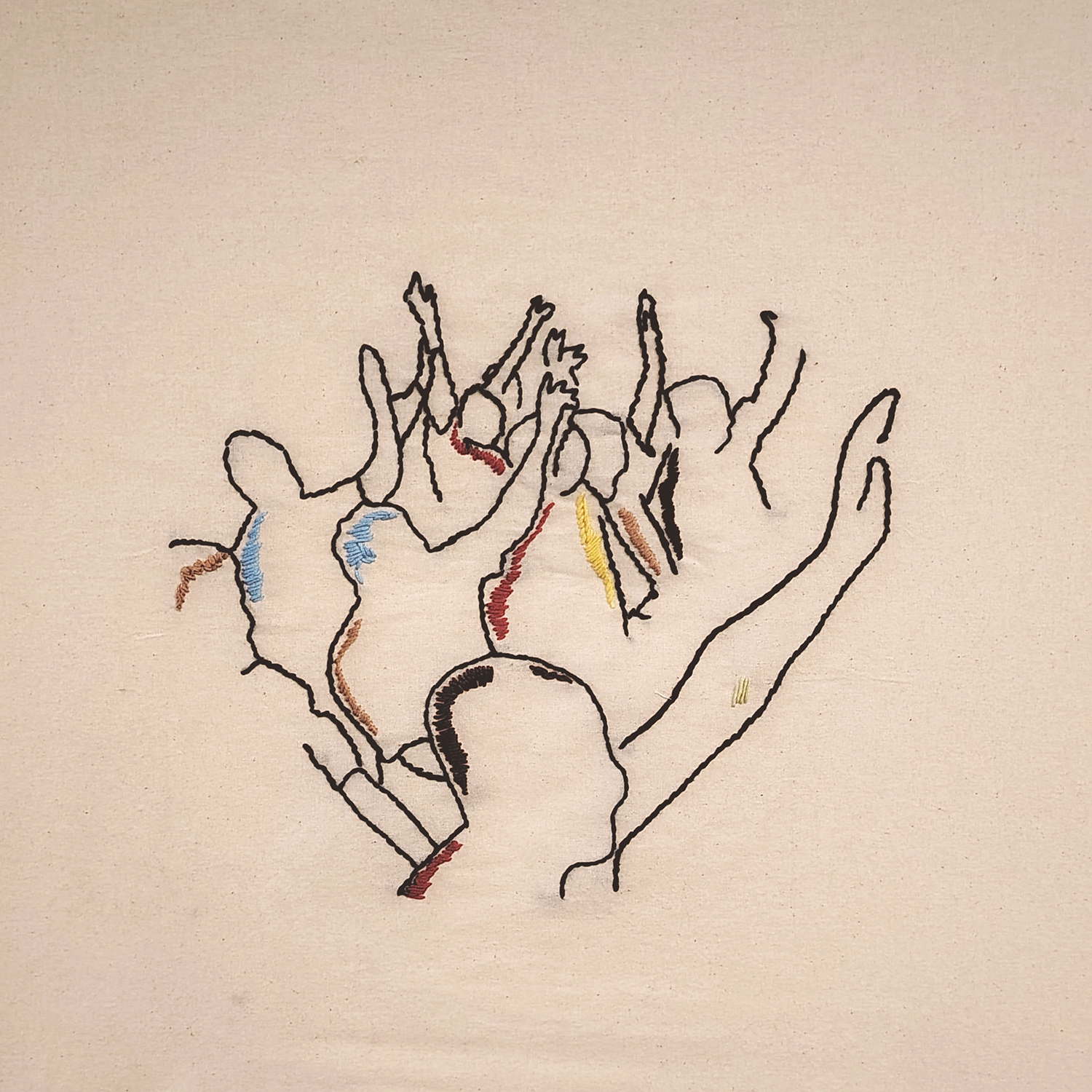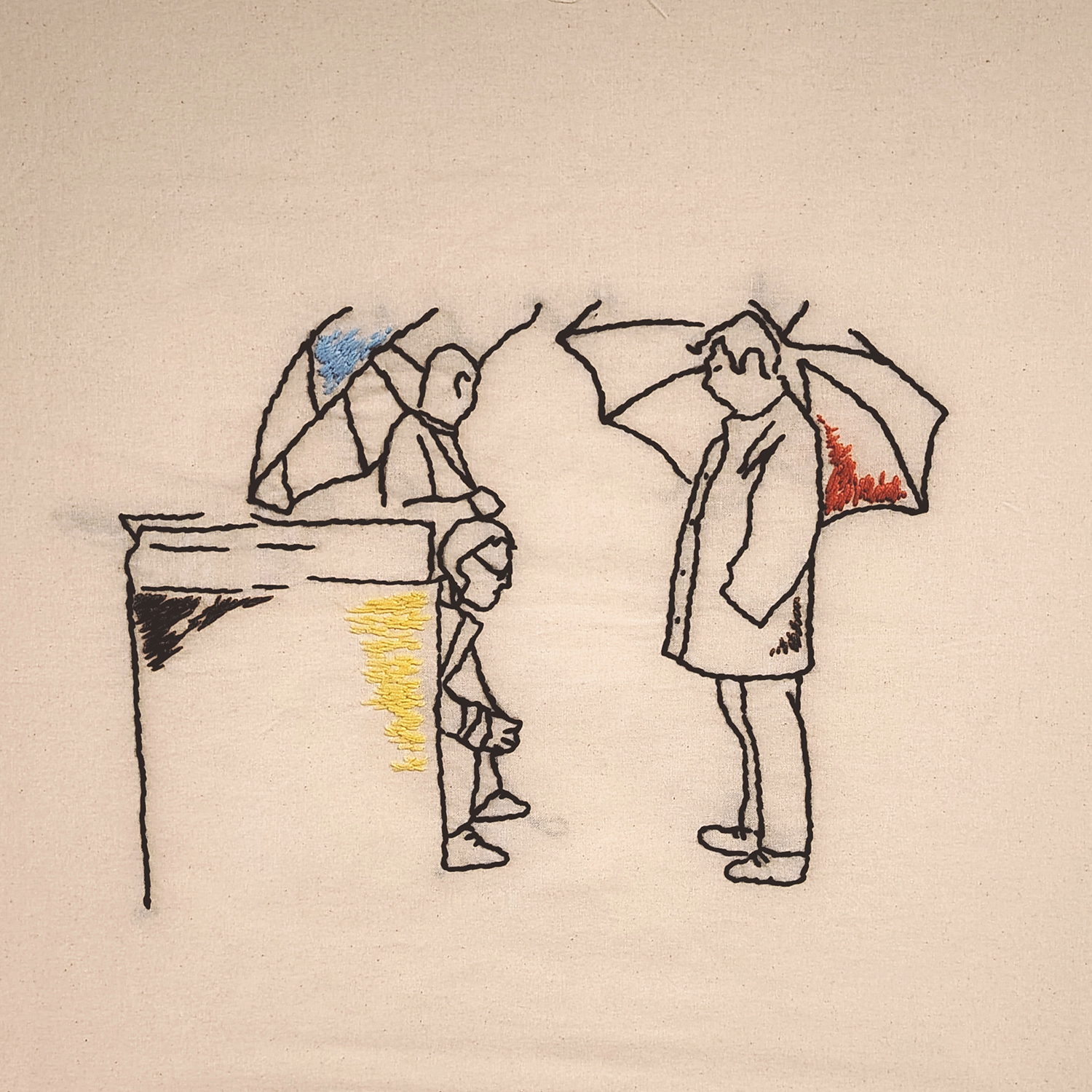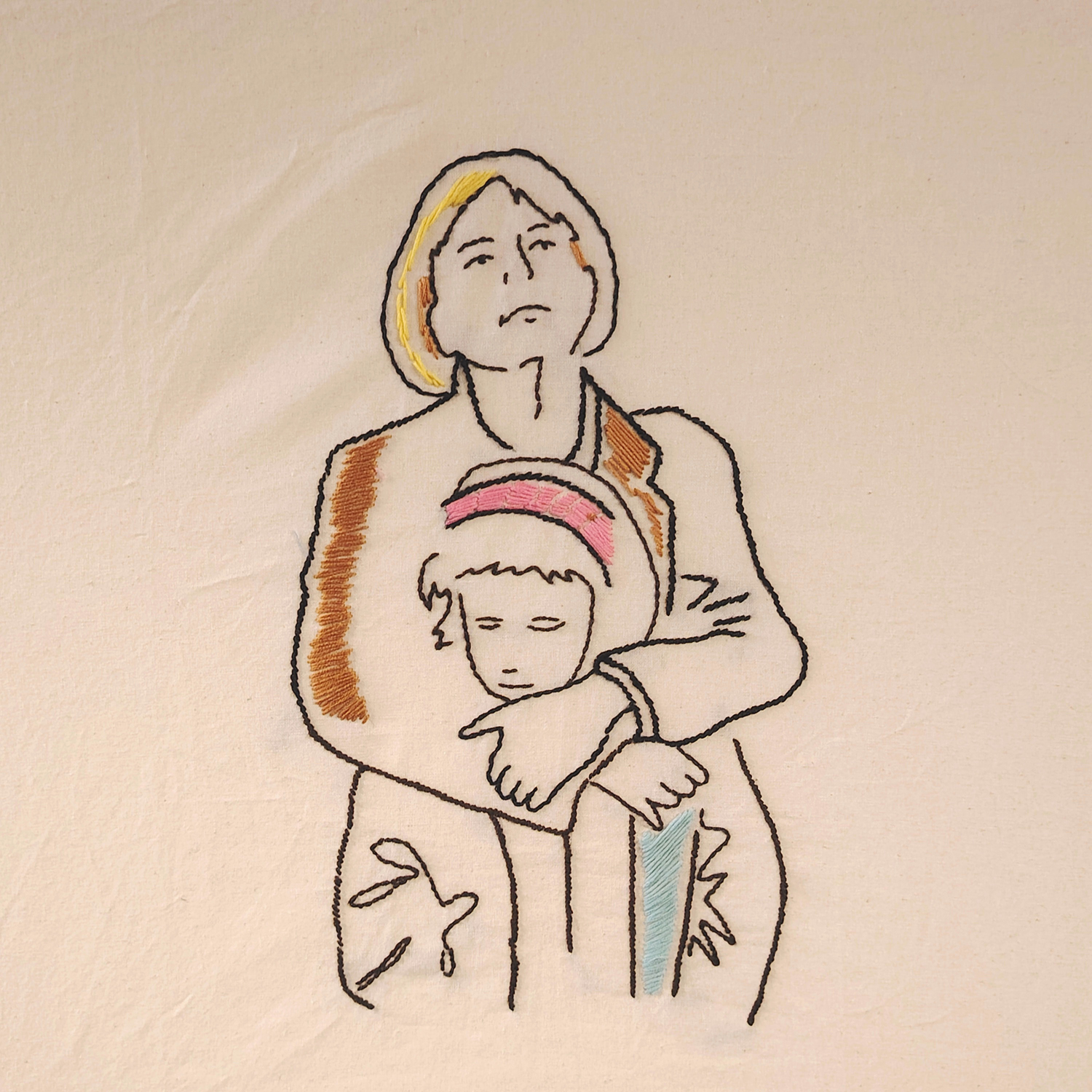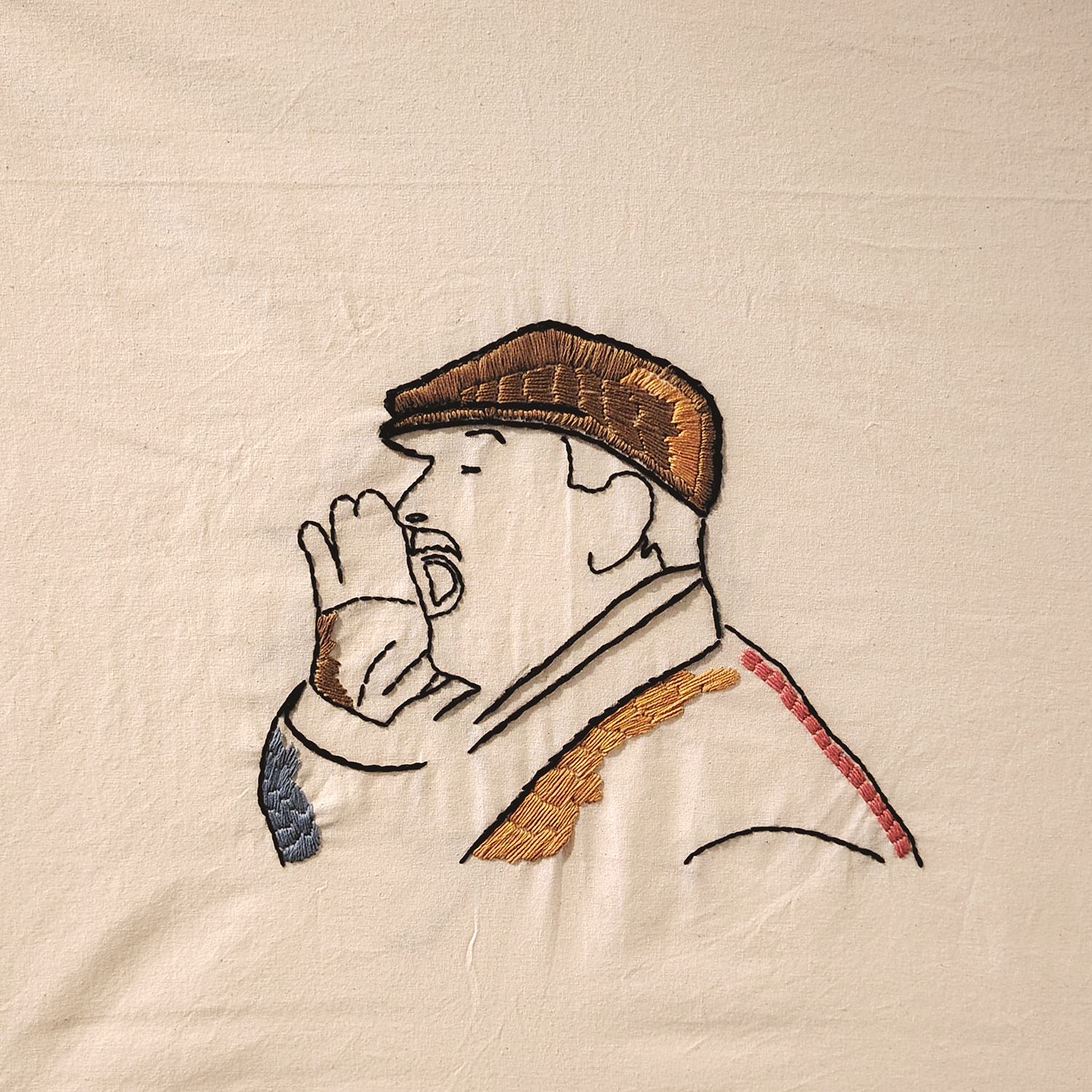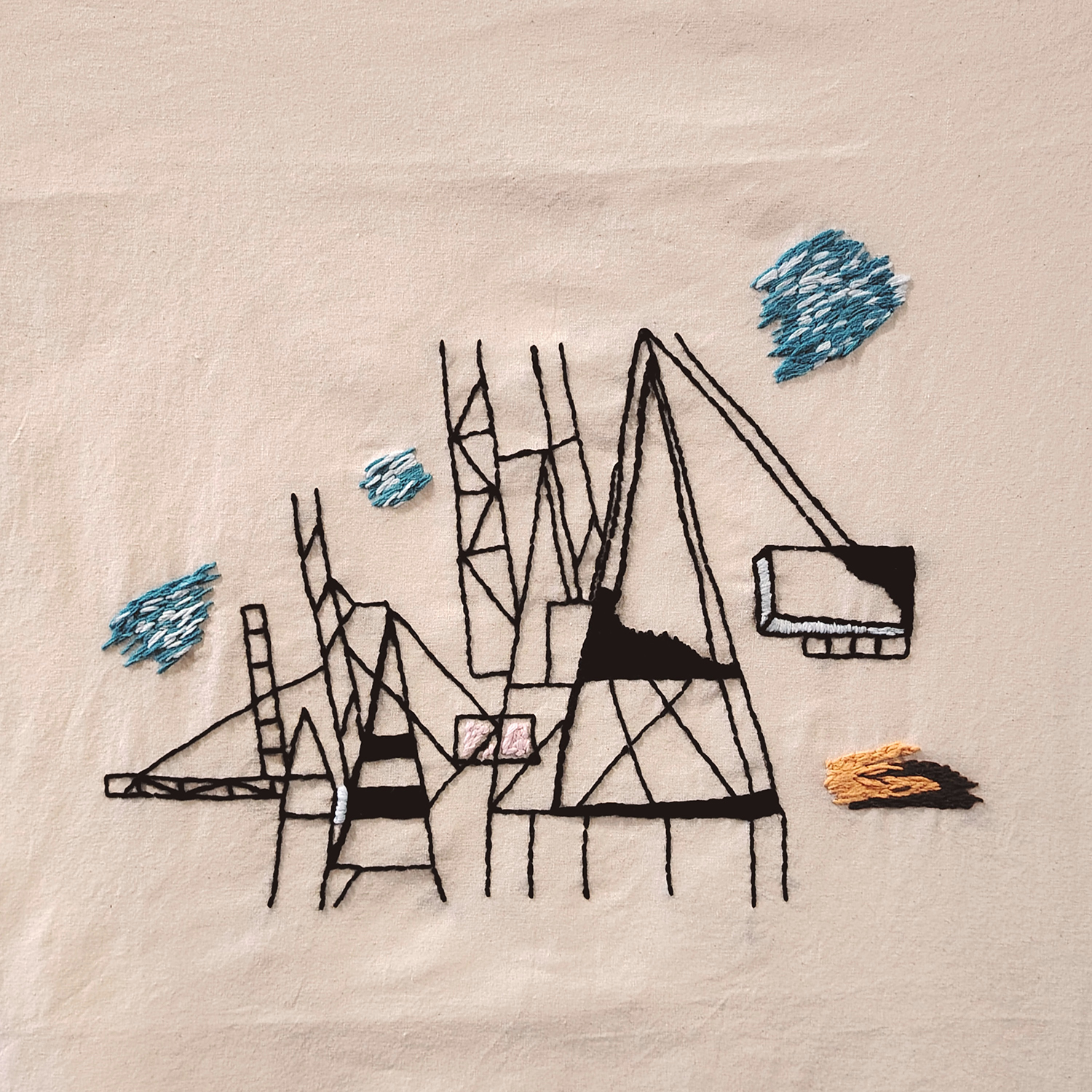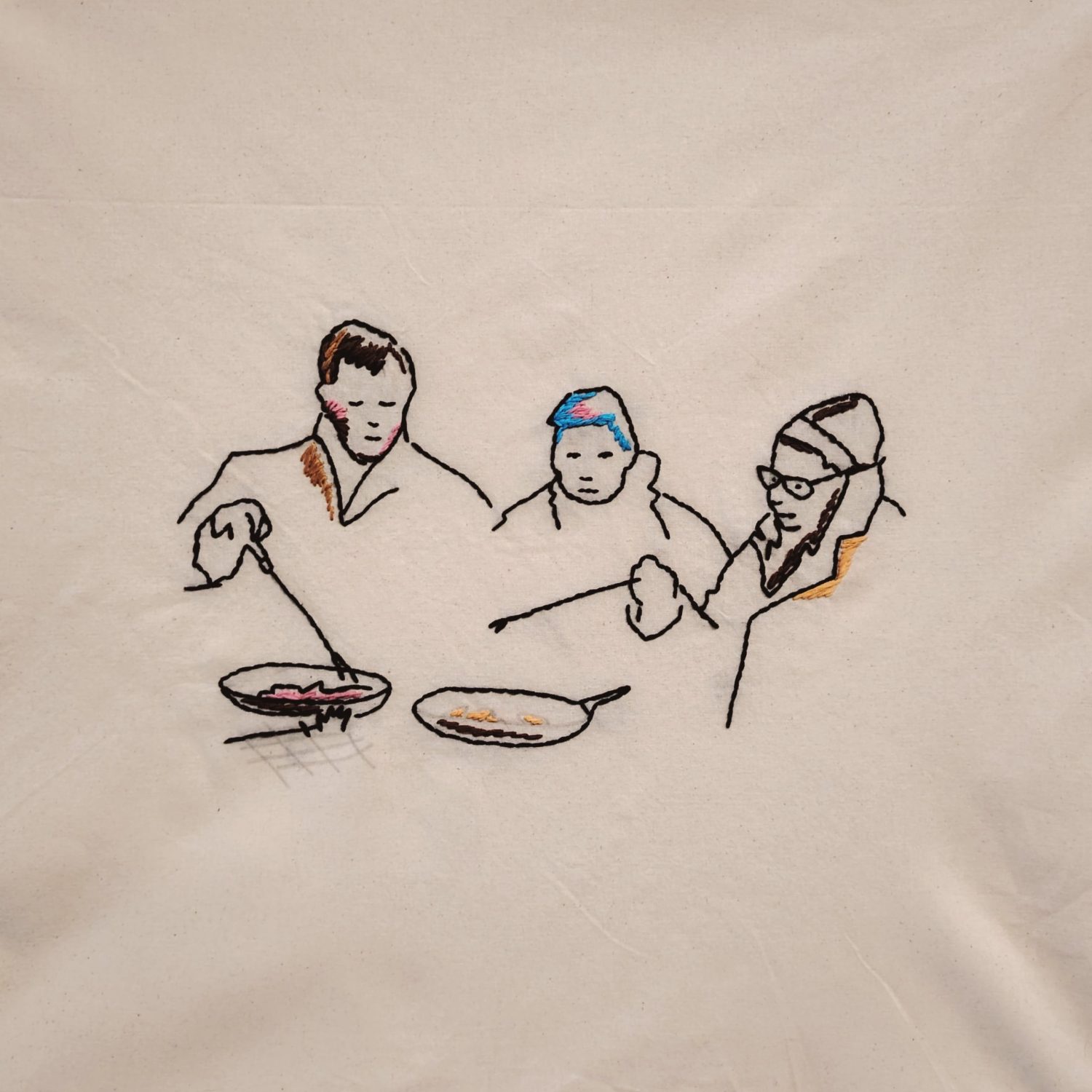Date: Saturday 6 April 2024 – Saturday 4 May 2024
Free Entry
Monday – Saturday. 10am – 4pm.
Closed Sundays & Bank Holidays.
Plan your visit here.
Location: Museum Landing. 2nd Floor.
This tapestry was created by community volunteers from Sefton and funded by Heritage Lottery and The Atkinson Development Trust as part of the “Sefton is 50” celebrations.
The tapestry depicts the events of The Liverpool Dockers’ Dispute, a moment of local history where workers and their families stood together in solidarity against unfair working conditions and changes to worker’s rights in the ports and offices on the Mersey Docks. The piece revisits photographs taken at the time and which encapsulate the struggle of workers and their families at the time of the crisis. The tapestry contains a raw and rough element of display, avoiding neat/tidy edges and a finished feel to portray the unsatisfactory outcomes of the dispute and the raw nature of the emotions felt by families who were involved. Produced with great thanks to all the volunteer sewing group who gave their time, regardless of sewing experience, to this project.
The Liverpool Dockers’ Dispute between dockers and their employers, Mersey Docks and Harbour Company (MDHC) and Torside Ltd, in Liverpool, England, lasted from 1995 to 1998. Although considered a strike, it was strictly a lockout as the employers, Mersey Docks, sacked the dockers for breach of contract when they refused to cross a picket line set up by their sacked Torside Limited colleagues. Initially, five Torside workers were dismissed following a dispute regarding overtime pay, who in turn formed a picket line that other dockers refused to cross in solidarity.
Various celebrities and high-profile figures, including footballer Robbie Fowler and singer Noel Gallagher, expressed and showed their support during the dispute, either through public awareness or financial support. Despite the election success of a Labour government in 1997, this did not help towards ending the dispute, given the new administration failed to reverse anti-trade union legislation enacted by the former Conservative administration.
The media’s reaction to the dispute was unenthusiastic – the BBC’s political correspondent for Liverpool suggested that editors did not find the story appealing while other organisations portrayed the dockers as dinosaurs. The British tabloid press did not start to cover the dispute until the international press became aware via communication over the Internet, which had been used by dockers to engage with worldwide trade unions.
The dockers had previously been described by Lloyd’s List as “the most productive workforce in Europe”. The dispute was never officially recognised by their union due to a ballot not being undertaken before the walkout, although the union did offer support financially and helped towards settlement negotiations. Various settlement offers were made by Mersey Docks and subsequently rejected by the dockers during the course of the dispute. By the time a settlement was negotiated and accepted in 1998, the conflict had become one of the longest disputes in labour history.
Community Sewing Group
Partners






